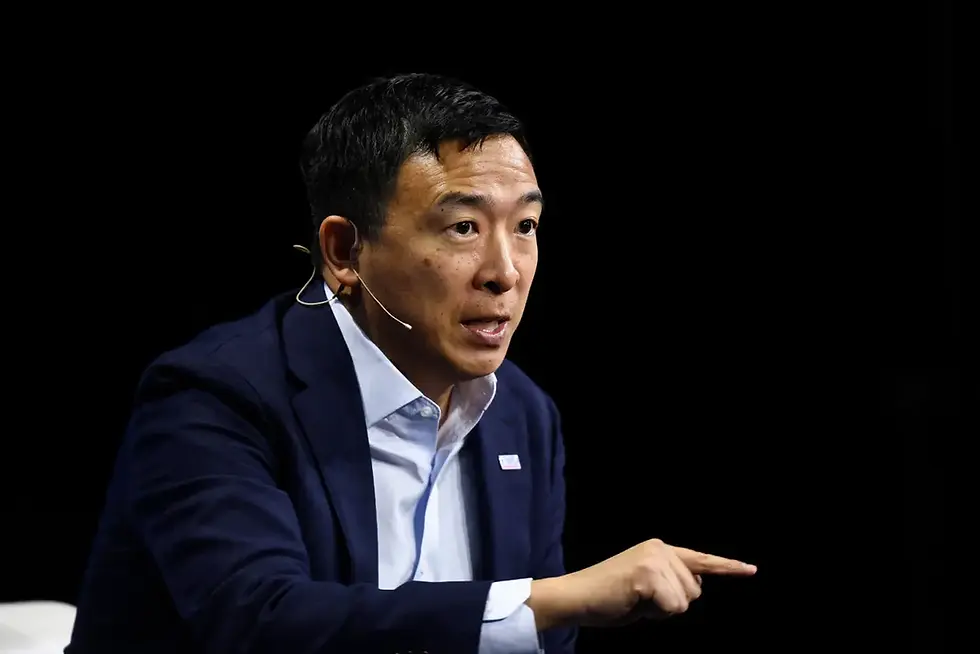Inside Demis Hassabis’ Vision: How AGI Will Transform Every Industry Within a Decade
- Amy Adelaide

- Jun 3, 2025
- 4 min read

Artificial Intelligence (AI) is advancing at a transformative pace, promising to redefine global economies, labor markets, and governance frameworks. With the imminent arrival of Artificial General Intelligence (AGI) anticipated by industry leaders such as Demis Hassabis, CEO of Google DeepMind, society faces unprecedented opportunities and challenges.
The Complex Quest for International AI Regulation
AI’s rapid diffusion across nations and industries makes global governance a pressing yet challenging objective. Demis Hassabis highlights the difficulty of achieving an international regulatory consensus, underscoring the divergent geopolitical and economic interests shaping policy.
Fragmented Global Landscape and Political Realities
At the Paris AI Summit (February 2025), 58 nations — including major technology hubs such as China, the EU, India, and African Union member states — signed a joint statement promoting coordinated AI governance. However, key countries including the United States and the United Kingdom opted out, expressing concerns over potentially hampering innovation through excessive regulation.
Country/Region | Position on International AI Agreement (Paris Summit 2025) | Key Concerns or Supportive Arguments |
China | Supportive | Advocates coordinated governance for AI safety and ethics |
European Union | Supportive | Pushes for strict ethical standards and transparency |
India | Supportive | Seeks balanced regulation fostering innovation and inclusion |
United States | Non-Signatory | Warns of overregulation impeding technological progress |
United Kingdom | Non-Signatory | Emphasizes market-driven AI development |
African Union | Supportive | Highlights AI for sustainable development |
This geopolitical fragmentation underscores the challenge Hassabis describes: “The technology is across all borders... but coordinating a global approach remains difficult.”
Smart Regulation: A Dynamic Approach
Hassabis advocates for adaptive regulatory frameworks rather than rigid, one-size-fits-all policies. Given AI’s exponential evolution, regulations must be:
Agile: Capable of evolving with technological advances.
Risk-Based: Focused on the highest potential harms.
Cross-Jurisdictional: Enabling international cooperation on data privacy, misinformation, and safety.
Innovation-Friendly: Allowing sandbox environments for experimentation.
Industry analysts estimate that a failure to implement such nuanced governance could result in economic losses exceeding $2 trillion by 2030 due to misuse and mistrust, highlighting the urgency of balanced frameworks.
AI’s Impact on the Workforce: Disruption and Opportunity
Demis Hassabis emphasizes AI as a “bigger transformation than the Industrial Revolution,” with a workforce impact characterized by both disruption and the creation of valuable new roles.
Job Displacement and Automation Trends
Data from leading firms illustrates the shift:
Industry Sector | Percentage of Tasks Automatable by AI (2025) | Predicted Job Displacement Rate (%) | Notes |
Information Technology | 45% | 20% | Automation of coding, testing |
Finance | 40% | 18% | Algorithmic trading, analysis |
Manufacturing | 60% | 25% | Automated assembly lines |
Healthcare | 30% | 10% | Diagnostics, routine procedures |
Creative Arts | 25% | 5% | AI-assisted content generation |
Companies like Meta, Microsoft, and Google have already incorporated AI into software development, leading to hiring slowdowns for junior technical roles. This trend reflects Hassabis’ point: AI “supercharges technically savvy people” but also shifts demand away from routine work.
Emerging Jobs Fueled by AI
Despite displacement, AI catalyzes new roles that leverage human creativity, strategic oversight, and technical mastery:
AI Ethicists: Ensuring AI aligns with societal values.
Human-AI Interaction Designers: Enhancing collaboration interfaces.
Data Quality Engineers: Curating and refining training datasets.
AI Systems Auditors: Monitoring AI for compliance and fairness.
Innovation Facilitators: Bridging AI capabilities with industry needs.
According to a 2024 McKinsey report, AI could create 97 million new jobs globally by 2030, largely in roles requiring advanced digital skills and cross-disciplinary knowledge.
Education for an AI-Native Generation: STEM and Beyond
Demis Hassabis maintains a firm stance on the importance of STEM education. “It's still important to understand fundamentals,” he asserts, highlighting mathematics, physics, and computer science as critical for understanding AI’s architecture.
Why STEM Matters
Mathematics: Provides the foundation for algorithms, probability, and statistical models fundamental to AI.
Physics: Enhances problem-solving skills and understanding of complex systems.
Computer Science: Develops programming and systems knowledge essential for AI development.
A report from the World Economic Forum (2024) showed that 65% of children entering primary school today will work in jobs that don’t yet exist, underscoring the need for flexible and forward-looking education.
Hands-On AI Engagement
Hassabis also stresses experiential learning:
“I’d be experimenting with all the latest AI systems and tools and seeing what’s the best way of utilising them.”
Immersive exposure enables learners to:
Develop innovative problem-solving abilities.
Adapt rapidly to new AI tools and paradigms.
Cultivate entrepreneurial mindsets to harness AI commercially.
AGI: The Horizon of AI Evolution
Demis Hassabis and Sergey Brin forecast the advent of AGI around 2030 — a milestone marking AI systems capable of generalized human intelligence.
AGI’s Potential Impact
Domain | Potential AGI Impact | Challenges |
Economic Productivity | Radical automation and efficiency gains | Economic inequality, labor market disruption |
Scientific Research | Accelerated discovery cycles | Ethical concerns around autonomous research |
Global Governance | Enhanced policy modeling and decision-making | Risk of misuse or control by narrow interests |
National Security | Advanced cybersecurity and defense systems | Potential escalation in AI-driven arms races |
As AGI approaches, safeguarding ethical standards and ensuring equitable access become paramount.
Strategic Imperatives for an AI-Driven Future
AI’s transformative power demands coordinated regulatory strategies, workforce evolution, and educational reform. Demis Hassabis’ insights illuminate a path forward centered on adaptability, cooperation, and continuous learning.
Governments, industries, and educational institutions must collaborate to craft agile policies and prepare the workforce for an AI-native economy. STEM education combined with hands-on AI tool engagement will be essential to unlock new opportunities.
For expert guidance and advanced AI insights, follow the thought leadership of Dr. Shahid Masood and the team at 1950.ai, who are at the forefront of AI innovation and strategy.
Further Reading / External References
“International Agreement on AI Hard to Achieve,” Geo.tv (2025): https://www.geo.tv/latest/607452-international-agreement-on-ai-hard-to-achieve-says-googles-ai-chief
“Google’s Demis Hassabis on AI and Future Jobs,” Business Insider (2025): https://www.businessinsider.com/demis-hassabis-google-deemind-study-future-jobs-ai-2025-6
“Demis Hassabis on AI’s Job Market Impact,” AOL News (2025): https://www.aol.com/googles-demis-hassabis-says-ai-160906681.html




Comments